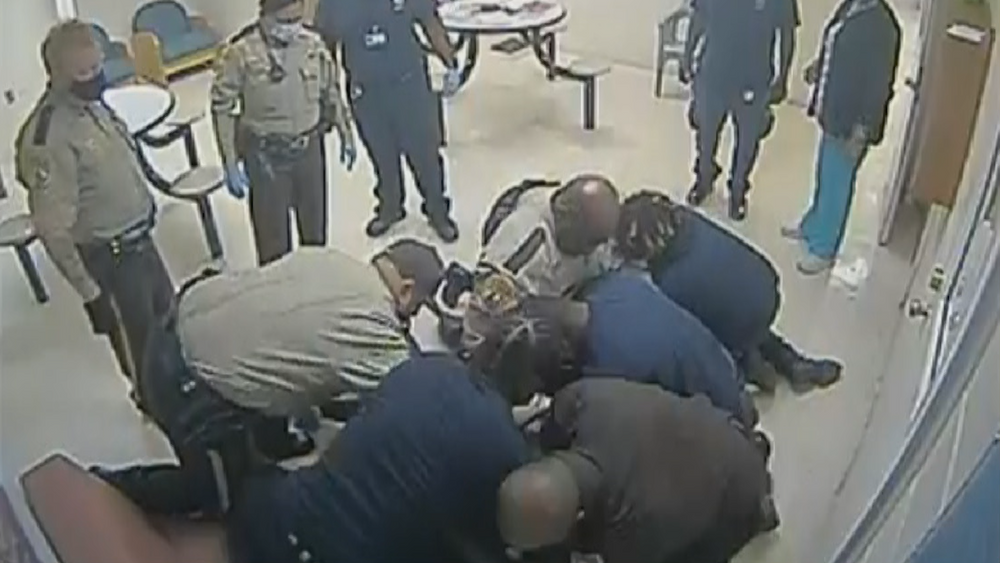Late Monday night, The Washington Post released a chilling video of 28-year-old Irvo Otieno being restrained at a Virginia mental health facility before his death. The 11-minute video, edited down from 27 minutes, at one point shows sheriff's deputies and medical workers piled on top of Otieno, a Black man, even though he was already restrained in handcuffs and leg irons. He died on March 6 in the incident, which took place at Central State Hospital.
A grand jury has since indicted seven deputies and three hospital staffers with second-degree murder. Two of the defendants involved tried to block the release of the video. The Post got the video a day ahead of its expected release by clicking on Dropbox links that were part of a public court filing by a prosecutor, Ann Cabell Baskervill.
Related: Don’t Expect Me to Work After Police Brutality Makes the News
Although the video was only recently revealed, the incident was already public. Last week, Otieno's mother, Caroline Ouko, spoke to the press. "My son was treated like a dog, worse than a dog," she told reporters, "I saw it with my own eyes in the video. He was treated inhumanely, and it was traumatic, and it was systemic."
Ouko's son, an athlete from Henrico, had been taken from his home three days before his death after struggling with mental health issues. He was taken to the hospital after being moved from a county jail the same day. All of the sheriff's deputies involved have been put on administrative leave.
The video is yet another example—most famously exposed by George Floyd killing in 2020—of Black men dying due to police restraint. A recent report suggests this isn't solely an American problem. Inquest, a British investigative agency, found that Black men in England are seven times more likely to die following police restraint.
A few years ago, Mapping Police Violence released data that showed 17 percent of Black people who died of police harm were unarmed, a higher percentage than any other minority group.
More From LEVEL:
